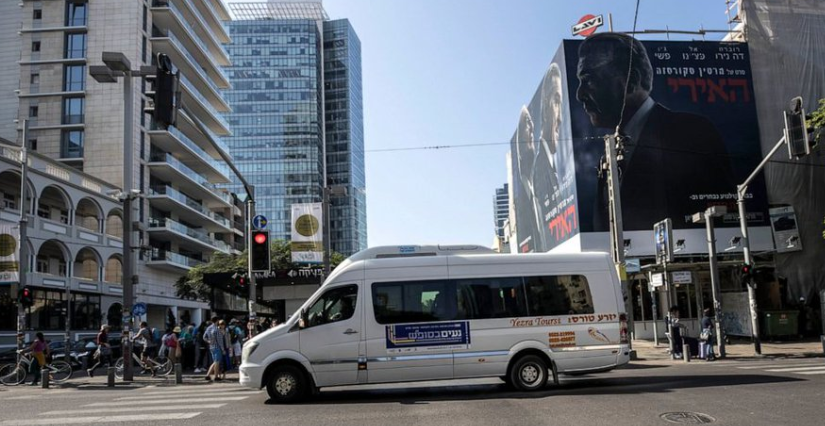Sabbath buses barrel through Israel’s religious-secular rift. https://t.co/AyBfK44Xt6
— ABC News (@ABC) November 29, 2019
As I noted here at GetReligion, I traveled to Israel earlier this year with a group of about a dozen U.S. religion journalists.
I wrote about a missile attack that occurred while I was there. I discovered that it was really no big deal.
I also gained a fuller understanding of the cozy relationship between Trump-supporting American evangelicals and the Jewish state. (Hint: Theology is involved.)
And I filled up my notebook with a lot of insights and questions that haven’t made their way into a published form. At least not yet.
During my weeklong experience through the American Jewish Committee’s Project Interchange, we stayed a few nights in Tel Aviv and the rest in Jerusalem. I was fascinated to learn of the stark differences between those major cities — one (Tel Aviv) a gay-friendly cosmopolitan metropolis and the other (Jerusalem) an old-time religious mecca still influenced by ancient Scriptures.
Suffice it say that since my trip, I’ve paid more attention to headlines from Israel, particularly those delving into the secular-religious divide that stresses modern-day Israel.
Speaking of which, maybe you saw The Associated Press story the other day on public buses running on the Sabbath in Tel Aviv. Or maybe you missed it during the Thanksgiving holidays. In either case, the AP story is worthy of note.
Read it carefully for a better understanding of the politics and religious divide in Israel:
TEL AVIV, Israel (AP) — Tel Aviv has taken a major step to cement its status as Israel’s secular mecca, launching public transportation services on the Jewish sabbath and redrawing the lines in the country’s culture wars between religious and secular citizens.
The defiant move circumvents the law and upends a decades-long status quo keeping public transit largely off the streets from sundown Friday to sundown Saturday throughout most of the country. It comes amid political paralysis that has cleared the way for what could prove to be the next battleground over the country’s ethos.
“This is a revolution,” said Nitzan Horowitz, the head of the dovish, secular Democratic Union party. “We cannot maintain a modern state with the necessary demands of the public while maintaining the religion with all its rules and laws.”
A little background that might be helpful, from the Christian Chronicle news story that I wrote after my trip:
Today, deep religious divisions characterize Israel — a nation of 8.7 million people that occupies a geographic area the size of New Jersey. The overall population is about 81 percent Jewish, 14 percent Muslim, 2 percent Christian, 2 percent Druze and 1 percent other.
But often, the conflict is between Jews themselves, as secular and Orthodox Jews clash over what should happen when democratic values collide with Jewish law (halakha), according to a Pew Research Center study.
Keep reading the AP story, and it highlights some of the religious and cultural issues at play:
For years, secular activists have pointed to the lack of public transit on the Sabbath as a prime manifestation of religious coercion in a state still grappling over its identity more than 70 years after its establishment.
Religious and traditional Jews in Israel view the Sabbath as sacrosanct and a time for rest. Observant Jews do not drive or use electricity on the Sabbath, among other restrictions. Most businesses shut down each week, and commerce comes to a standstill.
But in Tel Aviv, the country’s economic and cultural hub, the Sabbath takes on a different hue. Its sandy beaches are packed, cafes are buzzing and some shops stay open.
Overall, I found the AP report extremely informative and filled with important details that should enlighten even ordinary readers on what’s happening and what’s at stake.
I was a little surprised that the wire service didn’t quote a more traditional/religious source until near the end of the piece:
Opponents say the buses are part of a broader trend of creeping secularism.
“The minute you take steps such as these, it is a head-on collision with the country’s Jewish character,” said Amital Bareli, head of Hotam, a group that seeks to bolster Israel’s Jewish side.
That criticism aside, I highly recommend this story for anyone interested in Israel.










